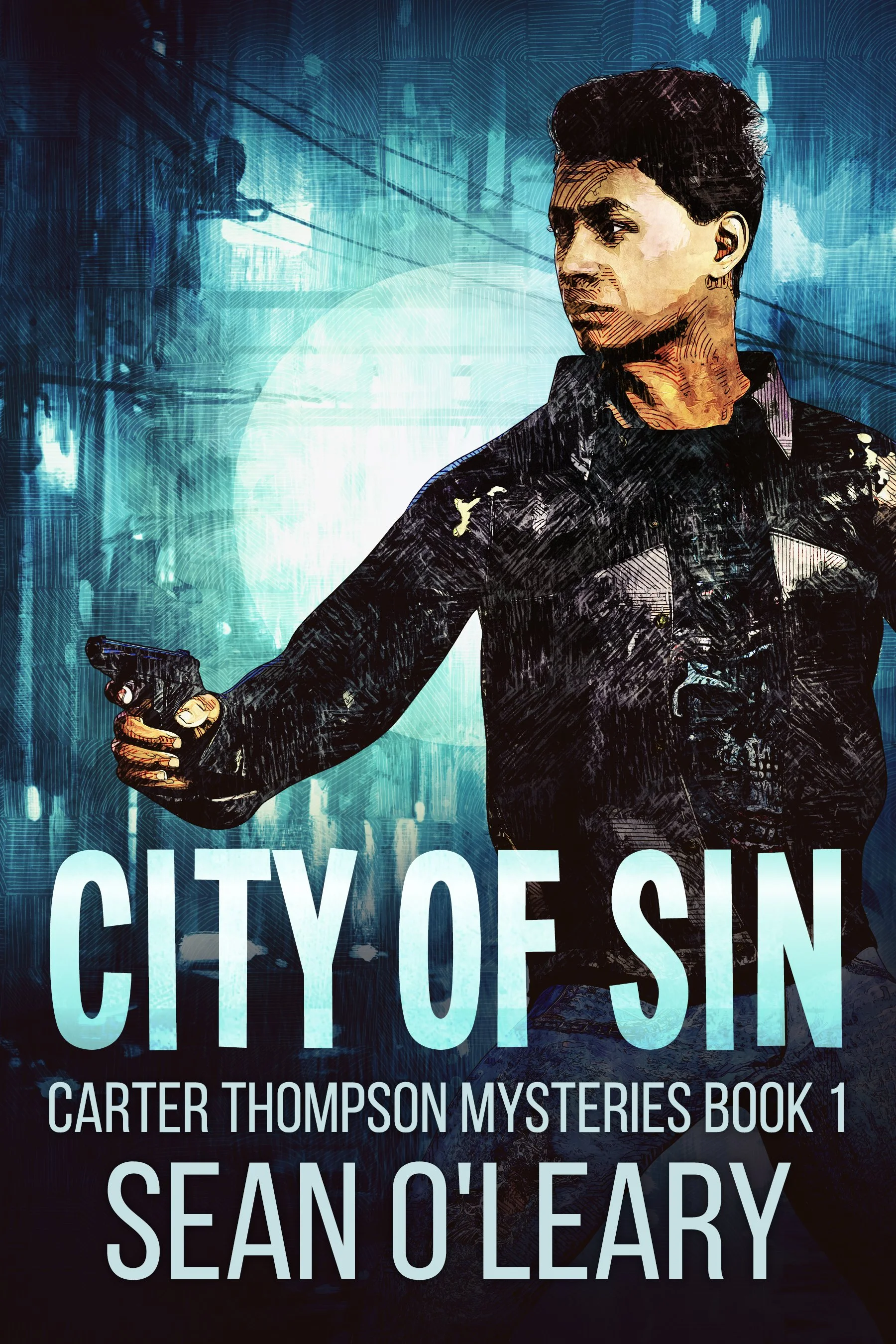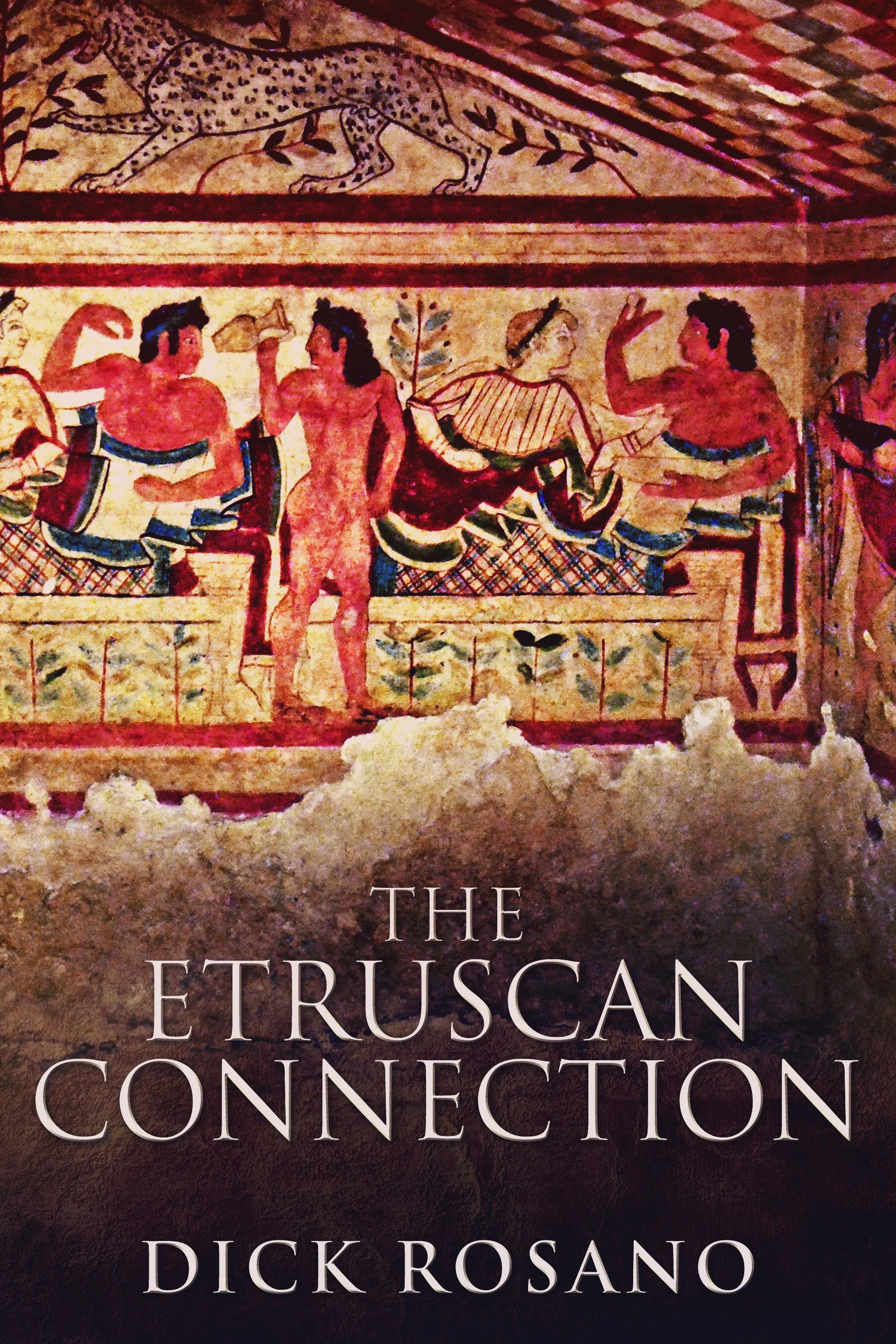Cut From The Earth (The Tile Maker Series Book 1)
Book summary
Set in 18th century Lisbon, Cut From The Earth follows the courageous tile maker Pêro Manuel Pires as he navigates the dangers of freeing slaves and sheltering a provocative artist. His noble efforts attract deadly attention, culminating in a devastating disaster that tests his resolve to fight for freedom and survival..
Excerpt from Cut From The Earth
In the Year of Our Lord 1755
Cries of anguish cut Lisbon’s noontide heat. Then stopped. Followed by a stream of air-slicing snaps and a man’s angry commands. “Get up! Get up, you burro!” Tile making supplies under his arm, Pêro pushed through the gathered crowd. Paulinha trailing him, arriving at the edge of a scene of horror. A man lay collapsed in the dirt, dust plastering one side of his face, his nose, his lips. His black back lacerated raw and bloody.
“I’m going to miss the ship, the sale!” the master roared. He pointed to the handcart loaded with heavy sacks of wheat.
For a split second, Pêro and Paulinha looked into the fallen man’s eyes, his soul, pleading for mercy, for relief, for escape. Pêro dropped his materials and lunged forward, arms outstretched. “Jibo! No! Stop!” He gasped, his tongue dry. It was visibly too late.
Paulinha gripped his arm, steadying herself. “Pêro! Wait!”
The lash-wielding master turned on the crowd. He cracked his whip and yelled: “What are you looking at! Get out of here! Be gone! All of you!”
Pêro broke forward, hands reaching to comfort the downed man.
The wax-coated and knotted whip lashed out, a viper’s tongue, coiling with lightning speed around his right third and fourth fingers, lacerating them to the bone. Pêro fell to his knees alongside Jibo. “He’s departed.” He closed his eyes and squeezed his limp hand.
Pêro’s vision blurred as he looked at Jibo, his bloodied fingers, the killer, and the dispersing crowd. Paulinha rushed to Pêro’s side.
With blinding force, Pêro stared at Jibo. Pain seared him. “Never again. This has to end.”
Tears in her eyes, Paulinha carefully placed her hand on Pêro’s. “Yes, this has to end.”
Chapter 1
Sketchbook in hand, Pêro Manuel Pires squinted at the sky, an ironed blue sheet without a crease of cloud. From the corner studio windows, he followed a carrion crow wheeling over the Atlantic, casting an ominous shadow. He drew the bird’s form as it cut inland to the outskirts of Lisbon, sailing aloft the Tagus River dotted with merchant ships. In the distance seven church-spired hills blessed the horizon. Pêro etched in the landscape as the bird circled above terracotta roofs, cork orchards, and tile factory smokestacks. It swooped before him, coming to rest on the kinked branch of an olive tree in the FabricaSanta María’s geranium-lined courtyard.
The earth trembled and a shudder rippled up through the ancient tree, causing his hand to stutter across the paper.
With a caw of warning, the crow took flight.
Pêro stopped drawing and turned toward the busy tile making shop.
Diogo, a boy black as squid’s ink, burst through the entryway. “Pai! Padre! Help!”
Ebony faces looked up from their worktables pushed against whitewashed adobe. A worker slapped a ball of clay onto a gesso tabletop and halted. Another abandoned the pricking of holes into transfer paper.
Pêro stuffed his pencil behind his ear and swiped the charcoal from his olive-brown hands onto his smock. He sought Rafa, who stood, like an obsidian statue before a trimming pedestal.
Diogo, Rafa’s son dashed to his side. “They’ve come for Avo.” The boy’s lower lip trembled. “They said for Grandfather Bagamba to ready himself to be sold to another cork farm.”
Pêro hurried over, his cassock sweeping a path clean.
Rafa spun to Pêro. “It can’t be. They promised.”
Pêro coughed on an inhaled scent of loam.
“Padre, are you going to let them take him?” Tears coursed down little Diogo’s cheeks.
“They’ve agreed to release him to me.” Pêro struck his thigh. “I’ve near enough for the final payments to the de Sousa family for his freedom.” He knelt to Diogo, offering welcoming arms. “Come here.”
“Please don’t let them take him, please…” Diogo pleaded.
The boy clung to Pêro’s neck, staring up at him.
Pêro rocked Diogo and then set him down, turning to the boy’s father, taking Rafa’s hands into his. “Try not to worry. I’ll do all I can. Soon he’ll be as free as you and I. I must go now to see about your father. Finish this order, so that we receive our payment. It won’t be long now; we must be diligent in our efforts. And pray for God’s assistance.”
Rafa placed a hand on Diogo’s shoulder. “Go home and tell them Padre Pêro won’t let this happen.” He leaned in and whispered. “Tell your mother to send word to the Blacks of the Rosary.”
Pêro watched the boy scuttle out into the looming twilight. Above the shop’s doorframe their statue of Saint Anthony quivered on its shelf, as it had several times throughout the day.
Pêro hurried over to the ceramic saint, steadying it until the shaking subsided. He looked up to the rafters. “The earth is restless today. What more?” He made the sign of the cross.
Pêro brushed sweat from his forehead and strode into the Mocambo barrio. Lifting his coarse robe, he quickened his step. A white spotted guinea fowl scurried past, disappearing into the maze of earthen homes. Children with protruding bellies and spindly legs stood in open doorways and darted inside as he rushed by. Blue smoke streamed into the pathway, as women tended their evening pots over open fires. Hot pepper bit the inside of his nose. He dodged a woman with strong black arms, who steadied a basket of salted cod atop her head. “Peixe! Peixe! fish!”
Rounding a corner in front of Rafa’s home, Pêro stopped, releasing his hold on his habit. Diogo sprinted to him, cheeks wet. Pêro embraced him and looked at Rafa’s family huddled before their home: Grandmother Gogo, Rafa’s wife Josepha, and his three oldest sons, ages seven to sixteen. Pêro’s stomach sank as he saw Rafa’s father, Bagamba, flanked by one of the de Sousa family’s transport men.
“Stop!” Pêro said.
The hired man prodded Bagamba with a polished stick.
Bagamba lifted his eyes, meeting Pêro’s in a silent plea. Light glinted off streaks of silver in Bagamba’s wiry hair and from the iron ring around his neck attached to a heavy chain weighing him down.
“Move, Benedito,” the man said, using Bagamba’s Christian name, pushing him forward.
“Wait.” Pêro blocked Bagamba. “He’s to come with me.”
The transport man’s arm tensed, as he swung the shiny stick in front of Pêro, blocking his way. “No! You defaulted on your payments, monk, and I have my orders.”
Pêro’s face flushed. “This man’s been promised to me. I’m a layman deacon, not a sworn friar.” He placed a hand on Bagamba’s shoulder. He shuddered at the long faces of the family before them. His blunder exposed, their disappointment radiating like scalding heat from a newly opened kiln.
“Go consult with Senhor de Sousa. I must carry out my duties.” The transport man grasped the chain and jerked the old man who stumbled towards the waiting cart.
Pêro gripped Bagamba’s shoulder, fingertips pressing, until he could hold on no longer. His hand slipped off. Bagamba tripped and peered back at him, eyes blazed with betrayal. Pêro glanced at his own right hand, to the stumped third and fourth finger, his mouth a tight white line. Yes, he’d go see Senhor de Sousa at once.
Chapter 2
“Padre Pêro, you know I have every right to sell him to whomever I choose. You’ve broken our agreement.” Senhor de Sousa stood tall and commanding, the fine lace of his shirt billowing forth at the neck and wrists. He looked Pêro squarely in the eye.
The waiting buyer sneered at Pêro, cocked his Northerner’s wide-brimmed hat, flung his cape over his shoulder, and recounted his coins.
“Yes, but you promised him first to me and you already have a substantial sum,” Pêro said. “Do you not?” Pêro looked over Senhor de Sousa’s shoulder at Bagamba slumped against the wall of a converted horse stall among manure and soiled straw.
The buyer dropped his coins, one by one back into a velvet sack. “Let us proceed.” He locked eyes with Senhor de Sousa.
“No. I’ll have the payments to you shortly. Please, I just need a little more time,” Pêro said. “I’ll make good on the past due payments and pay you in full soon. I promise…in the name of Our Lord.”
Senhor de Sousa drew his bejeweled hand to his chin and glanced pensively out the stable doors at the cork orchards and road lined with fragrant fuchsia oleander, both tended for years by Bagamba.
“We’ve already come to an agreement.” The buyer snapped at Pêro. “Here’s the payment.” The man offered forth the bag of coins, regaining Sehnor de Sousa’s attention. The full sack swung back and forth like a hypnotist’s pendulum.
Senhor de Sousa reached for it.
Pêro placed his marred hand upon Senhor de Sousa’s. “Please, I beg of you.”
The buyer dragged the toe of his boot through the dirt. “Christ!” He glared at Pêro and pointed at Bagamba with his gold-capped cane. “Why do you want this cork orchard mule? He’s not worth anything to anyone without trees.”
“Senhor, careful. Do not defile the Lord’s name, nor this decent man’s.” Pêro matched the rival and swept his robed arm toward Bagamba. “His son works in my tile factory. I’ve vowed to the Almighty to free the enslaved and keep families together, whatever the cost.” Pêro displayed his stumped fingers to Senhor de Sousa. “I’ve already sacrificed these for another man’s welfare. I warn you; I’ll seek recourse.”
Senhor de Sousa stiffened and lowered his hand.
The buyer huffed. “But here are the coins.” He shoved them forward.
Senhor de Sousa held up his open palm. “Padre, you have until All Saints Day. Otherwise, I’ll go ahead with this sale, withholding your down payment as we agreed.” He turned to the guard at the gate of the stall. “Let him go.”
Bagamba stopped walking at the base of the Mocambo hillside and bowed his head. “Thank you, Padre.”
“It’s what the Lord wanted. Thank him tonight in your prayers.” Pêro smiled at the weathered man. He prayed Bagamba could not sense his pounding heart. “Now, let’s get back quickly. The evening mist is already settling in.”
Pêro tried to enjoy the cool autumn air blanketing them and the lowland Lapa region to appease his worry. Before them stretched the magnificent valley, home to farms and estates like Senhor de Sousa’s and the streambeds that supplied the abutting Mocambo neighborhood and its tile factories with fine-toothed clay.
Bagamba hesitated.
Pêro paused. “What’s wrong?”
“Do you really believe they won’t come for me in the middle of the night?” He fingered the “S” brand on his neck. “I can’t bear another branding, not at this age. My skin will never heal. I’ve seen younger men die from infection.”
Pêro embraced Bagamba’s shoulders and looked into his eyes. “Senhor de Sousa has given me his word.” Tightness crept into Pêro’s shoulders.
“But he gave you his word before…And...”
“Yes, but are we not now heading home?” Pêro encouraged him forward, his stomach knotting.
Back in the Mocambo, they joined the flood of workers returning home. Here Pêro noted, the faces were every color of the earth’s soils, a visible contrast to the land-owning cream and olive-skinned residents of the Lapa. Pêro and Bagamba ducked to avoid fishermen with their catches dangling from sticks andside-stepped so as not to collide with two laundresses, full baskets balanced atop their heads. In front of them, a vendor carried net bags full of mussels. Servants and cooks of the upper classes bustled by. People, both bound and free, swarmed the street.
“See you tomorrow, if God wills it,” Bagamba said.
Pêro’s eyes were drawn to the unease etched on his wrinkled face. It pained him to see the man’s discomfort and feel his own in his stomach.
“Please, try not to worry, believe and have faith in God’s will,” Pêro said, as much for himself as he watched Bagamba go.
Pêro looked up to the open countryside backing the hilltop neighborhood and its single, two and three-story homes, all in need of fresh whitewashing, reminding him that when the tile factory smokestacks churned out plumes of soot, itsettled over the predominately African quarter and its gardens, coating everything in a light ash dusting. What a vicious circle to be caught in! Like my situation with those who continue to default on their payments to me! Sometimes the smoke caught an onshore breeze and traveled up to the palace of the Countess of Sarmento poised high above on the hillside. The Countess would send a man on horseback to the offending shop. But who could control God’s winds? Or the choices of wealthy men like Senhor de Sousa?
Chapter 3
Church bells clanged, and on anchored ships sailors began to sing Vespers, their salty voices floating across the water on the early night breeze.Pêro waited alongside the potholed road, brow creased, overseeing the dark shadows of the comings and goings of Portuguese Naval ships on the Tagus River below. The anchored merchant vessels were heavy with freight from the colonies and Northern Europe. A few carriages and donkey carts clanked past him. He hailed a ride and stared out the open window as he traveled east into the city center towards home.
The cross of the Convent of Senhora of Jesus came into view and pierced the Barrio Alto neighborhood’s horizon. Gold speckled the indigo sky was like a copy of a Giotto painting he had studied in his youth. How is my mentor, Padre Danta, and my Franciscan Brotherhood? It was nearly time for him to report on his deacon duties and responsibilities to the sick and poor. Obligations he had yet to properly attend to with the Fabrica’s escalating workload and now the urgency of Bagamba’s cause.
Dear Lord, I hope no one has fallen into irreversible neglect! He massaged his temples. Should I inquire to the Order about support for Bagamba?
One by one, lanterns of homes lit upon the slope below the Senhora of Jesus priory. If only he’d been able to negotiate more time with Senhor de Sousa.
Along the route, turbaned musicians beat on drums and vigorously shook tambourines accompanied by the strumming of a viola and the sounds of an accordion.
Merriment pulsed in Lisbon, while blue devils hovered over his heart.
At Lisbon’s central plaza, Rossio Square, Pêro descended from his coach and headed for a westerly side-street. Off in the distance to the east, All Saints Royal Hospital was alight, the tower of the infirmary’s Dominican chapel soaring above its roofline. As he turned down the cobbled street leading to his home, he whispered a prayer for Bagamba.
Shrouded in shadow from the surrounding five-storied residences, Pêro worked the key into the iron lock. He entered the dark sala, where his wife, Paulinha kept a pewter plate and two sconces upon an ornate cabinet, the few precious pieces her deceased mother had left to her. But it was the items she kept within the escritoire that he considered of secret treasured value.
Laughter, punctuated by his youngest daughter Isabela’s shrill giggling, led him to the kitchen. Lantern light haloed Paulinha’s dark hair and slight figure dressed in her clay-chalked work skirt, as she and the girls cleared plates from the table. Their chatter subsided as he slumped onto a stool.
Paulinha dried her hands on a towel. “The tremors today nearly rattled the pots off their hooks.”
Pêro rubbed his face with his hands. “Senhor de Sousa has given us until All Saints Day to pay for Bagamba. He must have the funds by November 1st, no later, or he’ll go ahead with another sale. They came for Bagamba today, had him already caged and in chains for transport.” Pêro met Paulinha’s piercing blue eyes.
“But why would they take him? We’re paying the installments for his release.” Her arm fell to her side, the towel limp on her leg.
Pêro pinched the ridge of his nose. “I’ve gotten behind in our payments to Senhor de Sousa.”
“What? How much? How could you let this happen, again?” She tossed the rag onto the table. “We’ve so many commissions.”
“But you know how it is, meu amor.” He reached for her hand; she leaned back against the counter. “We are only behind two payments.”
“And that’s only five weeks from now. We won’t have enough time or resources to pay what is outstanding,” Paulinha said. “And what about all we’ve already given Senhor de Sousa? Now, that’s at risk? How could you, Pêro?”
“It will take every order we have and timely payment to make this happen. I promise I will not extend credit to anyone for anything else. Rafa’s family — his father’s well-being, Bagamba’s life — depends on us. I know. Lord help us. I thought we’d have more time.” He made the sign of the cross. “Bagamba’s worried they’ll come for him in the middle of the night. I should have brought him here, at least for tonight.”
“Rafa will be relieved he’s there with them and will see to his welfare. If something happens, he’ll send word. Come to the table and eat.” Paulinha retrieved the dishtowel, holding Pêro’s stare.
His young daughters exchanged a worried look and finished drying the dishes in an uneasy silence.
“One of the year’s most memorable books”
“A wonderful read”
“A richly woven tale set in Lisbon at the time of the cataclysmic earthquake in 1755”




















Praesent id libero id metus varius consectetur ac eget diam. Nulla felis nunc, consequat laoreet lacus id.